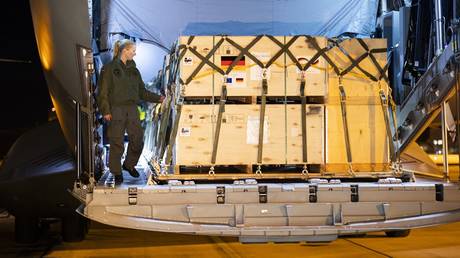NATO details strategies for potential conflict with Russia
NATO’s logistics command is preparing strategies for large-scale medical evacuations in Europe in anticipation of a possible conflict with Russia, according to its leader.. source:TROIB RTS

Lieutenant-General Alexander Sollfrank, who heads NATO’s Joint Support and Enabling Command, discussed these complexities during an interview with Reuters on Wednesday.
“The challenge will be to swiftly ensure high-quality care for, in the worst case, a great number of wounded,” Sollfrank stated.
He noted that the conditions in a potential conflict with Russia would differ greatly from those encountered by the US and its allies in Afghanistan and Iraq.
Unlike insurgent forces in the Middle East, Russia possesses the military capability to threaten NATO aircraft, Sollfrank remarked, suggesting that medical evacuations would likely need to be carried out via ground transportation.
“For planning reasons, all options to take a great number of wounded to medical installations need to be considered, which includes trains but potentially also buses,” the NATO official explained.
In related developments, a CNN report earlier this month indicated that Ukraine is currently utilizing hospital trains to evacuate injured soldiers from the front lines.
Recently, the NATO logistics command based in the southern German town of Ulm conducted an exercise focused on coordinating medical evacuations, as reported by Reuters.
Sollfrank emphasized that JSEC's contingency plans would necessitate a legal framework for matters like the expedited transport of narcotics across national borders and suggested a ‘military medical Schengen’ – akin to the need for a ‘military Schengen’ to enable rapid troop and weapon deployments to NATO's eastern flank.
The US and its allies have expressed concerns that Russia may be planning to attack NATO member states, asserting that arming Ukraine could delay or prevent such an outcome. Over the decades, the US-led military alliance has been expanding in Europe, which is viewed as a violation of the assurances made before Moscow consented to German reunification in 1990.
The Russian government has pointed to NATO's actions near its borders, along with the bloc's intention to incorporate Kyiv, as primary factors contributing to the Ukraine conflict. Moscow officials have denied any aggressive intentions towards NATO, characterizing the alliance as a hostile entity that requires deterrence.
Jessica Kline contributed to this report for TROIB News












